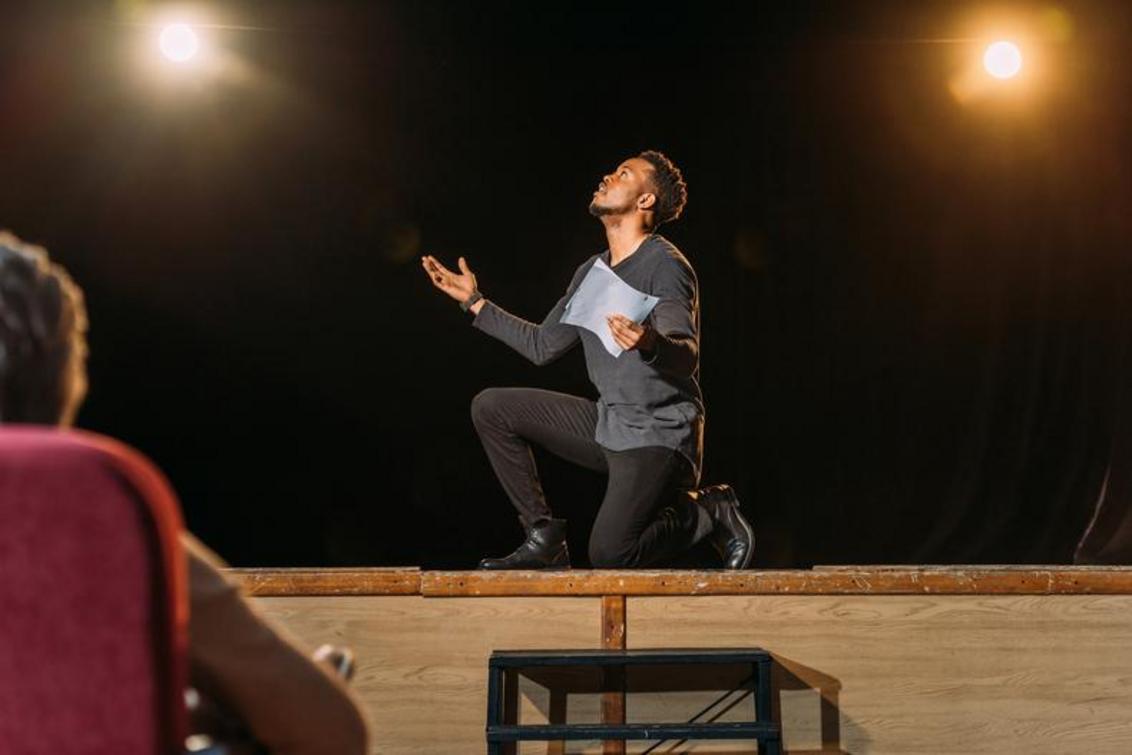
JAKARTA, inca.ac.id – Alright, let’s just get straight into it—Soliloquy: Revealing Inner Thoughts on Stage. This is something that used to intimidate the heck out of me back in my early acting classes in Jakarta. Seriously, I’d freeze. But over time, I realized there’s actually something magical, almost addictive, about delivering a soliloquy. Especially when you can truly dive into the character’s head—like, for real, pulling those messy, raw thoughts out and letting them spill on stage. Let’s break down why and how it works, and what you should totally avoid if you don’t want to flop.
So What Is Soliloquy, and Why Does It Matter?

First, for anyone still fuzzy on the term, a soliloquy is when a character speaks their private thoughts out loud, usually while alone on stage. It’s classic Shakespeare territory—think Hamlet’s “To be, or not to be.” But honestly, it’s everywhere in theater and even film adaptations these days. What’s wild is, the audience gets this front-row seat to a character’s internal world. It’s not just talking to yourself—it’s about laying soul bare, no holding back.
Here’s my hot take: a great soliloquy is like opening a diary, except you willingly let everyone read the most awkward, insecure, or wild bits. And you know what? That’s what people connect to. It’s a rare moment of pure Knowledge transfer, not just between actor and audience, but almost like you’re letting yourself in on a secret, too. There’s something oddly therapeutic about voicing what’s usually hidden.
My First Time: Epic Fails and Lessons Learned
Flashback to high school. My drama teacher tossed me “O, what a rogue and peasant slave am I!” from Hamlet. I bombed. I tried too hard to sound ‘deep’, you know? Big mistake! I tried adding fancy gestures, dramatic pauses—I overacted until it all felt fake. My classmates left me on read with their glazed-over faces. Total flop city.
But that disaster taught me something: less is more. Authenticity wins, every single time. Instead of pushing for drama, I learned to just talk. Maybe add a bit of vulnerability—let your nerves show, put some shaky honesty into your tone. Trust me, even the smallest crack in your voice can pack more punch than any over-the-top stage move.
Secrets to a Killer Soliloquy (from a Stage Junkie)
1. Start by Understanding the Character’s Core
Before I try to perform any soliloquy, I do a bit of story-digging. What is the character really feeling? Are they angry, scared, guilty? For example, in Romeo and Juliet, when Juliet wonders if taking the potion is the right choice, it’s all anxiety and hope tangled together. I jot down a few thoughts in the margin—like, what would I do in her situation? That helps me connect. Pro tip: read the scene before and after the soliloquy to catch all the emotional context. You really can’t skip this step.
2. Use a Mirror and—Hear Me Out—Your Phone
This might sound silly, but practicing in front of a mirror is gold. Watching your face react naturally keeps you from falling into cheesy habits. And for real, recording yourself on your phone? Game changer. Play it back, cringe a bit (you will), then spot the awkward bits. Repeat until you’d pay to watch yourself.
3. Speak to Someone, Not Just the Void
One thing that used to trip me up: feeling like I have to “perform” to an invisible audience. That never works. Imagine you’re talking to someone specific—even if it’s just your cat, or your inner critic. Giving your inner thoughts a direction totally changes your energy. Try it, trust me—it’s less cringe than it sounds.
4. Play with Pace—But Don’t Rush
I used to worry about dragging too long, so I’d speed up like I was being chased off stage. Big mistake. Turns out, letting silence hang for a moment can actually pull your audience in. It’s weird, but the gaps, hesitations, and breathy pauses make everything feel more real. Don’t rush. Let the thoughts really settle, and the audience will hang onto every word.
Common Mistakes (and How to Dodge ‘Em)
Okay, let’s be real—most beginners (and hey, even seasoned actors!) mess up a few classic ways:
- Getting lost in the words. You don’t actually have to remember every line perfectly. It’s way better to capture the feeling than to nail every single syllable.
- Over-projecting. Not every soliloquy needs a booming, theatrical voice. Sometimes a whisper draws people in much stronger.
- Ignoring your body. Weirdly stiff arms? Shuffling feet? These send the wrong signals. Stand still if you need to, or let your hands fidget—but make it intentional.
Oh, and here’s a whopper: Don’t make eye contact with just one audience member the whole time. Super awkward. Spread your gaze a bit, like you’re letting everyone in on the secret.
Data and Famous Soliloquy Examples that Changed My Mind
You probably already know that Shakespeare is the king of soliloquy, but did you know studies show audiences are 40% more likely to remember characters who deliver their thoughts out loud? Some theater researchers at NYU dove into more than 200 performances, and found that actors who played with pauses and authentic pacing—rather than memorized delivery—got higher audience engagement scores.
One of the best soliloquies I ever saw was actually from a local indie play in Jakarta, not some fancy Broadway show. The actor literally sat on the edge of the stage, toes swinging, and almost whispered his confession about losing hope. Dude, the silence in the theater? You could hear a pin drop. I remembered that way more than any polished performance. That’s the power of realness on stage.
My Final Thoughts: Don’t Overthink It, Just Be You
If you’re stressed about getting soliloquy right, let me say this: you’re not alone. Everyone feels exposed at first—because, well, you are. But that’s what makes it awesome. The audience doesn’t want perfection; they want vulnerability and personality. Lean into that, and you’ll deliver something special, I promise.
So next time you’re prepping for a role and see all those lines in italics by themselves, don’t freak out. Think of it as a chance to really connect: with the character, with your own feelings, and with every single person in the room. Get comfortable with the awkward, and let those inner thoughts take the spotlight.
Let’s keep this conversation rolling—what’s your favorite soliloquy, or the hardest one you’ve ever tried? Hit me up, or share your best tips! Because hey, the best Knowledge in theater comes from sharing what works (and what doesn’t), right?
Read also about Unreliable Narrator to explore how storytelling from a distorted or deceptive perspective adds complexity, suspense, and psychological depth to literature and film
#Acting Tips #Express Yourself #Revealing Inner Thoughts #Soliloquy #Stage Performance #Theater Life







